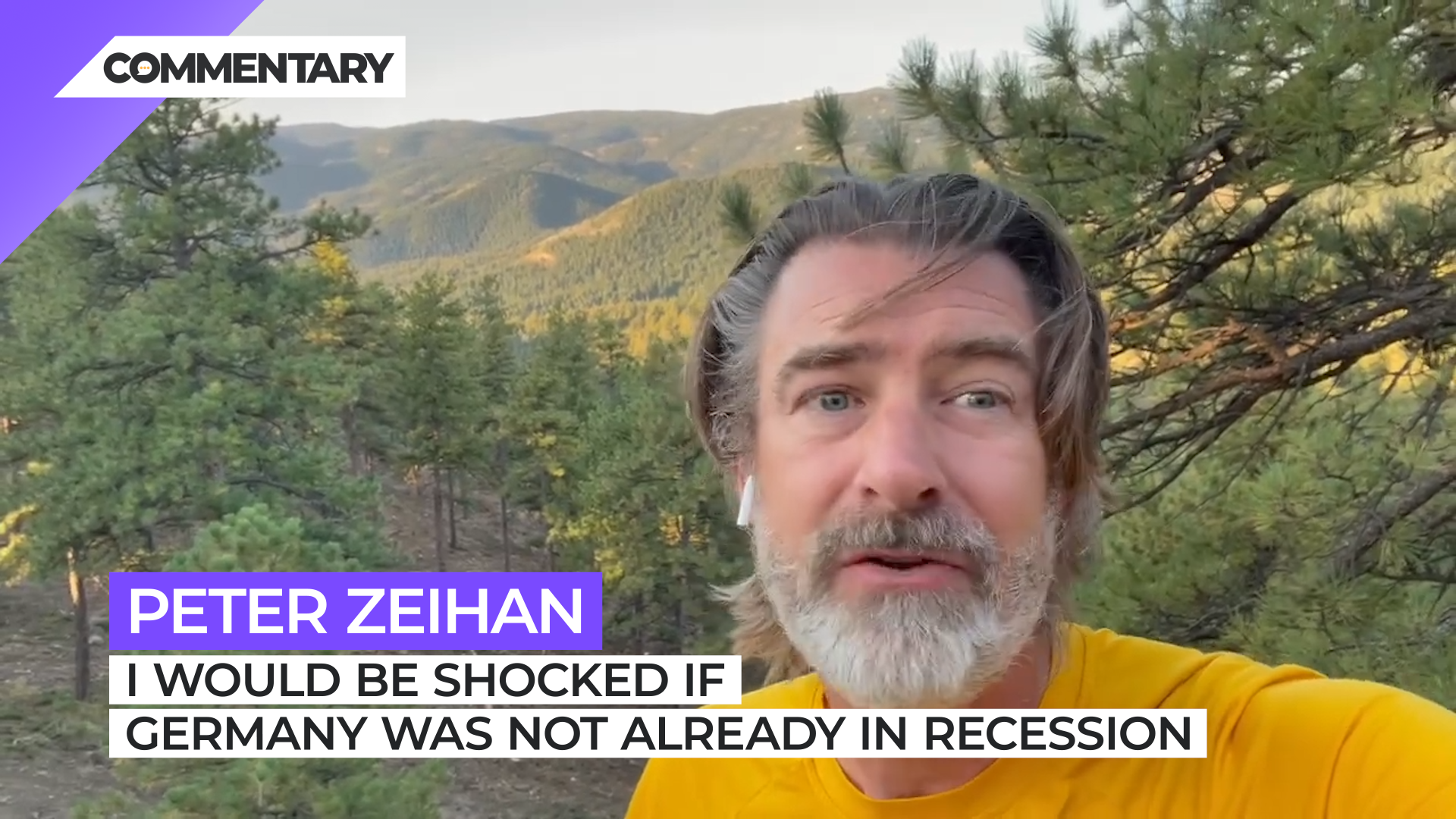
Commentary
-
Our commentary partners will help you reach your own conclusions on complex topics.
Hi, everyone …Peter Zeihan here coming to you from Colorado. I’ve been going out of my way to not talk about the energy situation in the Ukraine War, because so much has changed in the last two months and I wanted to kind of get a good overhaul. We’re still not at a point where I can give you a really firm prediction on too much of anything, but I do want to point out a couple of basic things about energy markets. Energy markets are so volatile because demand tends to be elastic. So like, if you say you need a gallon of gas to get from home to work and you can only get three quarters of a gallon, you don’t go to work. So you have to scrimp and save and hoodwink and steal in order to get that extra quarter of a gallon. Otherwise your life falls apart.
It’s very similar for industrial needs to make petrochemicals or heating for your house. You either have it, or you don’t. And you are going to pay through the nose to get that last little bit. That means most of the pricing power in most energy markets comes from the cost structure and the pricing power of the marginal supplier. So whoever produces that last extra one, two or 3 percent, they’re the ones who set the market price for everything. Now, what that means in the case of the Ukraine War and the situation in Europe is, the Russians have gone from providing baseload cheap energy to the European continent, to suddenly removing…themselves from the market. So the marginal suppliers in Europe are now setting the price. Even worse, you’re talking at somewhere – based on the country – somewhere between 10 and 30% of total energy now has to come from somewhere else.
So a lot has been made of the Germans bringing on these new liquified natural gas or gasification facilities so they can bring in LNG from different continents. And a lot has been made of the Europeans being able to reduce their demand by 10, 15 percent. These are all relevant things. And the Germans have been able to get their storage back up to 85 percent. And these are all good things. But that means there will be enough supply, but it’ll be at a very different cost structure because now 10 to 30% of the supply is coming from new marginal suppliers who are much farther away, with much higher cost structures. As a rule, liquified natural gas is the most expensive way to move natural gas from one place to another. Because you have to basically freeze it into a liquid, put it into a specialized tanker, ship it across an ocean, unload it in another specialized facility that can then re-gasify it and put it in your system.
And in the case of Germany, they’re using ships to do that last step, which is also the most expensive way to do it. So the cost structure for this new stuff is 2, 3, 4, 5 times as much as what the Russians used to sell their natural gas to Europe for. And that sets the price structure for the entire natural gas market, heating market, industrial energy market and electricity market. So on the good hand…yes, the Europeans are unlikely to see the lights actually go out because of a lack of material. That’s great. They’re going to see it go out because of a price level that no one can afford. Now the only way you can deal with this is by reducing marginal demand.
You’re talking about everyone needing to cut their energy consumption by about 10 to 30 percent. Right now the Europeans are a little ahead of the schedule on that, but they haven’t had to shut down anything from an industrial point of view, and that is coming. One of the key things to remember is that Germany is not like the United States. In the United States, we’re relatively agnostic about where we get our energy: Domestic versus foreign, coal versus natural gas versus solar versus wind. And because of that, no marginal supplier in the national market is able to really dictate prices because there’s always a replacement system. Well, the Germans are removing nuclear from the mix and the Russians have removed natural gas from the mix and other countries have coal or nuclear. Germany doesn’t have any of that. So they’re all being supplied by marginal demand. I’m sorry, being supplied by marginal suppliers right now.
And if you go into winter when demand skyrockets, because you know, you’re cold in the winter, you know that the prices are going to go through the roof, even if supplies are not in danger. What that means is in Germany, we have a very big problem coming up. Not just because we’re gonna be seeing blackouts or brownouts or high prices; but in order to crush that demand the German government’s going to have a very clear choice to make.
Let their people freeze in the dark or reduce industrial demand. And unlike the United States where we’re very agnostic about where we get our petrochemicals and what fuel sources go into it, because the Germans have removed so many things from the equation, they use Russian natural gas to fuel their petrochemicals, to provide the base for their heavy and medium manufacturing. And if you remove that from the mix, that is the end of the German manufacturing model.
I would be shocked if Germany was not already in recession. And this winter, when this system breaks down, that means we’re going to have an industrial recession in Germany and every country that participates in that industrial system. That includes the Netherlands, Belgium, Austria, Poland, Slovakia, Hungary, the Czech Republic and probably a couple that I didn’t mention just because I forgot.
So we are looking at the end of what makes the heart of German manufacturing and the European economy work, this winter. Okay. That’s it for me until next time.
-
Hurricane Helene hits US coast, Appalachia and beyond
Hurricane Helene hit Florida and Georgia overnight between Sept. 26 and 27 as a Category 4 hurricane, and accompanying storms will continue reaching deeper into the continental United States today. Dangerous flash flooding from the hurricane, known as storm surge, was some of the worst flooding that the Tampa Bay area has ever seen, and… -
Israel holds upper hand against Lebanon, Hezbollah and Iran
On Wednesday, Sept. 25, Hezbollah launched a ballistic missile at Tel Aviv in retaliation for Israel’s explosive pager attack that blew up devices across Lebanon. Although Israel’s defense systems intercepted the surface-to-surface missile, the attempted strike on Tel Aviv marked a significant escalation by Hezbollah. Since the siege on Gaza began, shortly after the Oct. 7, 2023,… -
The Sinaloa Cartel civil war
Fears of a civil war within the Sinaloa Cartel are growing as violence between competing factions within the cartel continues. The Mexican Army has dispatched around 600 elite troops to Sinaloa to help quell those fears, in addition to roughly 2,200 regular soldiers and National Guard. Watch the above video as Straight Arrow News contributor… -
New Ukrainian weapons hit Russia where it hurts
Ukrainian drones struck a major Russian ammunition depot, triggering a massive explosion that was captured on camera. According to the Ukrainian military, 2,000 tons of munitions had arrived at the depot before the attack. Over the past two years, Ukraine has significantly increased its domestic drone production, allowing it to scale up attacks on military… -
Weighing social costs vs. economic benefits on immigration
Global human migration is one of the defining elements of our current historical era, according to the United Nations. Migrants face both the incentives to leave — forced out by climate change, crime and corruption, extreme poverty or violence — and incentives for where to go, based on available job opportunities and so on. Migration…
Latest Stories
-
 Getty Images
Getty Images
Trump to deliver first joint address to Congress on Tuesday
-
 Getty Images
Getty Images
Canada, China respond swiftly to new US tariffs
-
 Reuters
Reuters
Bipartisan reps urge governors to ban DeepSeek on government devices
-
 Getty Images
Getty Images
Senate Democrats block transgender sports ban
-
 Getty Images
Getty Images
2 Guatemalan nationals ran one of US’ ‘largest human smuggling rings’: DOJ
Popular Opinions
-
In addition to the facts, we believe it’s vital to hear perspectives from all sides of the political spectrum.
Latest Opinions
In addition to the facts, we believe it’s vital to hear perspectives from all sides of the political spectrum. We hope these different voices will help you reach your own conclusions.
The opinions published in this section are solely those of the contributors and do not reflect the views of Straight Arrow News.





















Latest Commentary
We know it is important to hear from a diverse range of observers on the complex topics we face and believe our commentary partners will help you reach your own conclusions.
The commentaries published in this section are solely those of the contributors and do not reflect the views of Straight Arrow News.
Dr. Frank Luntz
Pollster and Political Analyst‘Biased’: What Americans think of ‘mainstream media’
‘Getting rid of them’: Americans discuss Trump and immigration
‘Woke’: Why some Biden 2020 voters backed Trump in 2024